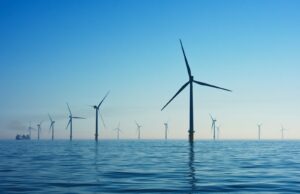Researchers from the Universities of Leeds and Sheffield have won £1.26m to help decarbonise the UK steel industry.
The funding has come from the Centre for Research into Energy Demand Solutions (CREDS), which is funded by UK Research and Innovation, to develop approaches that blend technology and policy with the aim of eliminating the industry’s dependence on fossil fuels.
With the UK committed to reaching net-zero emissions by 2050, as well as competition from China, the UK steel industry has had a difficult few years. In 2019, Tata Steel announced they would be closing its Newport Factory and British Steel entered insolvency.
To help give the industry a better future, researchers will investigate ways it can be decarbonised within 30 years.
The current process of manufacturing steel is extremely carbon-intensive. According to figures from the World Steel Association, every tonne that is manufactured creates 1.8 tonnes of carbon dioxide (CO2).
To produce steel, coke, which comes from coal, is used as a reducing agent in the blast furnace which produces CO2 as a waste product. The liquid hot metal which comes out of the blast furnace is saturated in carbon and the excess carbon is then removed in a basic oxygen furnace to produce crude steel.
According to the European Steel Association (EUROFER) about 50% of the steel produced in Europe is derived from scrap metal. Scrap is melted in electric arc furnaces which require huge amounts of energy.
Professor Nick Eyre, CREDS Director, said: ‘Decarbonising the UK energy system is a major national challenge for the coming decades, nowhere more so than in major industrial processes. I am therefore delighted that colleagues from Leeds and Sheffield are joining CREDS to research steel industry decarbonisation.’
Professor William Gale, an energy expert at Leeds and the project’s principal investigator, said: ‘The reality is the steel industry in the UK has to decarbonise, but this has to be done sensitively otherwise there is a risk the industry will relocate to where the rules on carbon are more lax.
‘Our challenge is to bring about real change without eroding the wafer-thin margins on which the industry operates.
‘Steel is an important material so we can’t just stop manufacturing it. This project will bring together a range of experts: from scientists and engineers involved in researching alternative methods of production or ways to recover it from scrap – to policy and business experts analysing the policy initiatives and incentives needed for this change.’
Last year, the University of Sheffield helped launch a new £35m research network to develop a ‘smarter, greener, clean’ steel industry.
The SUSTAIN research network is led by Swansea University and involves more than twenty partners across the UK steel industry including Sheffield Forgemasters.
Excited to see this important new project launched @UniversityLeeds which will develop a fully-costed ‘route map’ of technologies and policies to decarbonise the #steel industry https://t.co/RiZOtBJLSH
— Energy Leeds (@EnergyLeeds) February 13, 2020
















